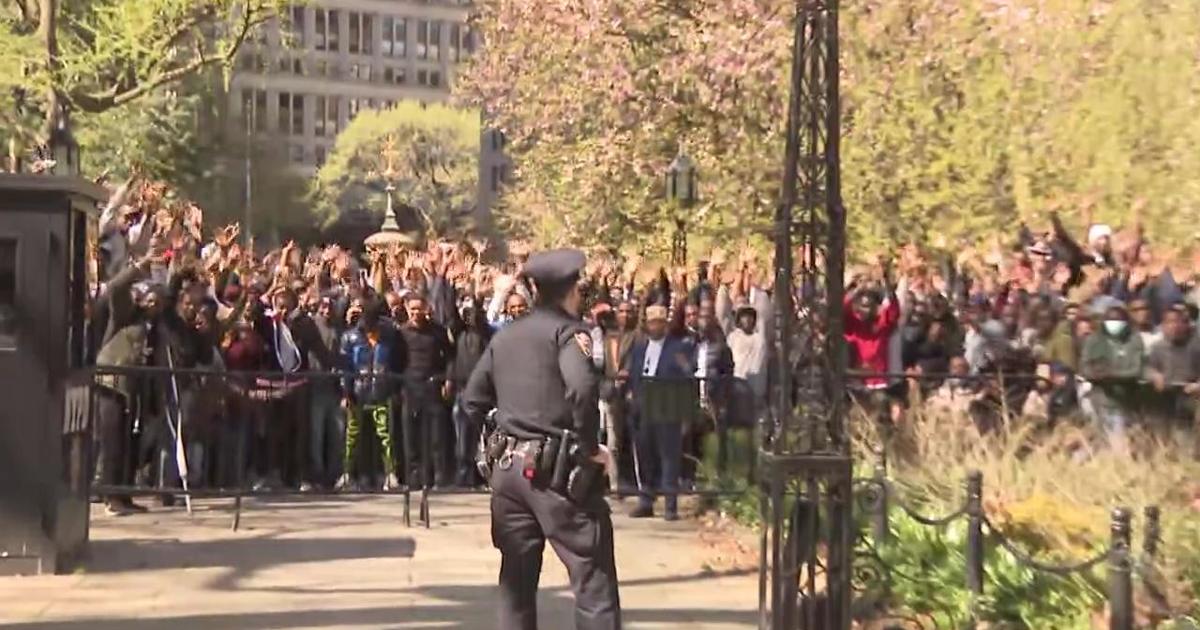Home Invasion Jury Can't Consider Execution Cost
NEW HAVEN, CT (AP / WCBS 880 / CBS 2) - A burglar who killed a woman and her two children in a home invasion cannot bring up the high cost of executions to try to avoid the death penalty, a judge ruled Thursday, saying it "makes no moral sense'' to select a punishment based on dollars and cents.
LISTEN: WCBS 880 Connecticut Bureau Chief Fran Schneidau reports
New Haven Superior Court Judge Jon Blue ruled against attorneys for Steven Hayes, who wanted to include the cost as a mitigating factor in trying to persuade jurors to sentence Hayes to life in prison. His attorneys say studies have shown life sentences are cheaper overall than death sentences, factoring in incarceration and appeal costs.
The judge said jurors have the task of "using reasoned moral judgment, not counting dollars and cents'' in deciding life-or-death punishment.
Hayes was convicted last week of 16 counts for the 2007 killings in Cheshire. The same jury will begin hearing evidence Monday that they will use to decide whether he gets life in prison or a death sentence.
Hayes' cost argument would have been a novel one, had Blue allowed him to use it.
Courts have ruled unanimously that such economic arguments are inadmissible whether they are made by prosecutors or defense attorneys, Blue said. Under state law, a mitigating factor must relate to the defendant's character, background or history or the nature and circumstances of the crime, Blue said.
Blue called economic arguments "perverse'' when applied to specific cases, saying the cost of life imprisonment will be greater for a younger defendant with a longer life expectancy.
"From an economic point of view, it will thus be more expensive to incarcerate the younger defendant for the remainder of his life and, in strict economic terms, more cost effective to execute him,'' Blue wrote. "This will be the case even if the younger defendant has just turned 18 and has no criminal record, and the older defendant has spent his years acquiring a lengthy criminal record. This argument plainly makes no moral sense.''
Hayes' attorneys said an expert they hired concluded that death penalty cases cost about $3 million in Connecticut, compared with $2 million for life sentences.
Prosecutors have cited the aggravating factors they plan to argue, including that Hayes committed the killings in an especially heinous, cruel or depraved manner.
Authorities said Hayes and another ex-convict, Joshua Komisarjevsky, broke into a house, beat a doctor with a baseball bat and forced his wife, Jennifer Hawke-Petit, to withdraw money from a bank before Hayes sexually assaulted and strangled her.
Their daughters, 11-year-old Michaela and 17-year-old Hayley, were tied to their beds with pillowcases over their heads and doused with gasoline before the house was set ablaze, according to testimony. Michaela was sexually assaulted. The girls died of smoke inhalation.
Komisarjevsky's trial starts next year.
(Copyright 2010 by The Associated Press. All Rights Reserved.)



